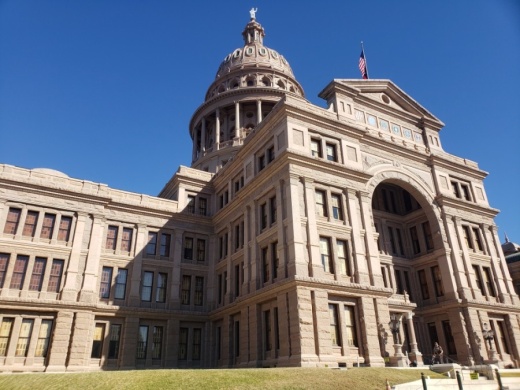According to a March 8 news release from Speaker of the House Rep. Dade Phelan, R-Beaumont, House Bills 10-14 and 16-17 all relate to statewide electricity reform.
"I am proud the Texas House is leading the charge in protecting consumers, fortifying our grid, and creating clear lines of communication and authority during extreme weather events," Phelan said in a statement. "We must take accountability, close critical gaps in our system, and prevent these breakdowns from ever happening again."
Similarly, Senate Bills 2 and 3 relate to Electric Reliability Council of Texas reform and power grid stability, respectively, as outlined by Lt. Gov. Dan Patrick, R-Houston, in a Feb. 23 news release.
"Since the Texas Legislature adjourned in 2019, Texas has faced some of the greatest challenges in our history," Patrick said in a statement. "In fact, several of my priority bills changed in the last few days in response to issues that emerged from the winter storm last week. ... I will be working to make sure this legislation passes and that we do all we can to make our state, our cities and all our communities safe and secure going forward."
While not all of the bills announced have been filed as of March 9, according to the Texas Legislature Online, legislators have until March 12 to file bills for consideration in the 2021 session. As of March 9, 3,795 bills have been filed by members of the House and 1,420 bills have been filed by members of the Senate since the session began Jan. 12.
- House Bill 10 would restructure the ERCOT board, replacing the unaffiliated members appointed by the governor, lieutenant governor and speaker of the house. HB 10 would also require all board members to reside in the state of Texas and create an additional ERCOT board member slot to represent consumer interests.
- Author: Rep. Chris Paddie, R-Marshall
- Status: filed March 5; referred to State Affairs Committee on March 8
- House Bill 11 would require electric transmission and generation facilities in this state to be weatherized against the spectrum of extreme weather Texas may face. Utilities would be required to reconnect service as soon as possible and prevent slower reconnections for low-income areas, rural Texas and small communities.
- Author: Paddie
- Status: filed March 5; referred to State Affairs Committee on March 8
- House Bill 12 would create a statewide disaster alert system administered by Texas Division of Emergency Management to alert Texans across the state about impending disasters and extreme weather events. The alerts would also provide targeted information on extended power outages to the state's regions most affected. This system builds off the model used for the Amber, Silver and Blue Alert systems.
- Author: Rep. Richard Pena Raymond, D-Laredo
- Status: filed March 5; referred to State Affairs Committee on March 8
- House Bill 13 would establish a council composed of leaders from ERCOT, the Public Utility Commission of Texas, the Railroad Commission and TDEM to coordinate during a disaster. The committee would identify challenges with fuel supplies, repairs and energy operations and would prevent service interruptions from the wellhead to the consumer.
- Author: Paddie
- Status: not yet filed as of March 9
- House Bill 14 would require the Railroad Commission to adopt rules requiring gas pipeline operators to implement measures that ensure service quality and reliability during an extreme weather emergency, including winter and heat wave conditions.
- Author: Rep. Craig Goldman, R-Fort Worth
- Status: not yet filed as of March 9
- House Bill 16 would ban variable-rate products, such as Griddy, for residential customers. These types of speculative plans resulted in exorbitant bills for customers during the winter storm. This bill would provide consumer protection to residential customers while still allowing the competitive market to flourish.
- Author: Rep. Ana Hernandez, D-Houston
- Status: filed March 5; referred to State Affairs Committee on March 8
- House Bill 17 would prevent any political subdivision or planning authority from adopting or enforcing an ordinance, regulation, code or policy that would prohibit the connection of residential or commercial buildings to specific infrastructure based on the type or source of energy that will be delivered to the end user.
- Author: Rep. Joe Deshotel, D-Beaumont
- Status: filed March 5; referred to State Affairs Committee on March 8
- Senate Bill 2 relates to ERCOT reform.
- Author: TBD
- Status: not yet filed as of March 9
- Senate Bill 3 relates to power grid stability.
- Author: TBD
- Status: not yet filed as of March 9





